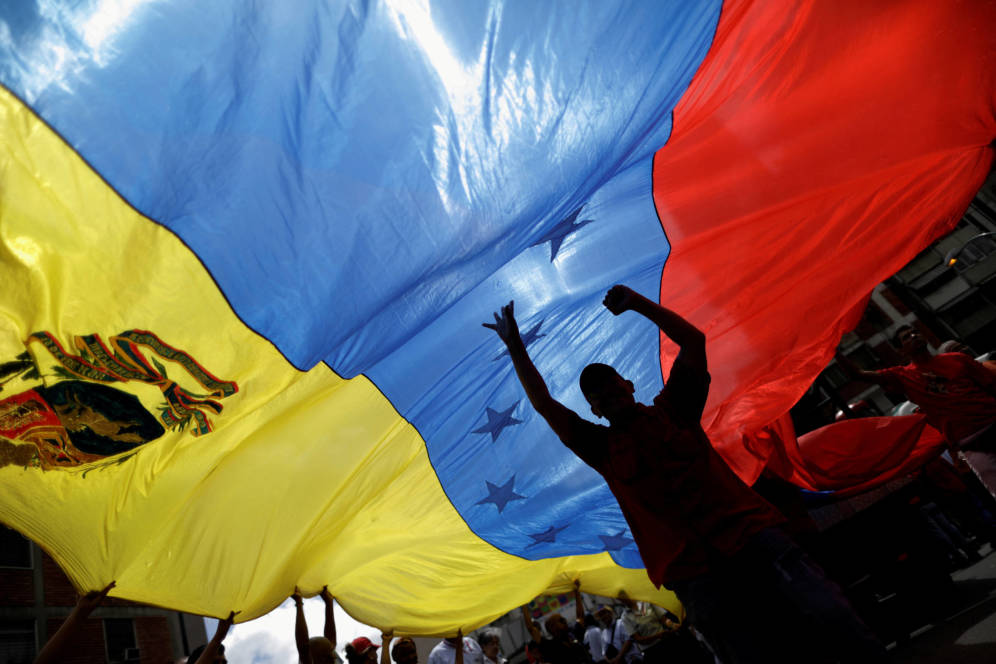Bitcoin in the face of economic collapse: why is the Criptomoneda booming in Venezuela?
As hyper-inflation sweeps the value of the bolivar, more and more Venezuelans resort to the Bitcoin as a stable method of income generation amidst the economic collapse

It is still a minority practice but the bitcoin has experienced a meteoric ascent in Venezuela in the last two years. As hyperinflation sweeps the value of the bolivar, more and more Venezuelans resort to Criptomoneda as a stable method of generating income in the midst of economic collapse.
As a result of restrictions on currency trading and uncontrolled hyperinflation-the National Assembly, in the hands of the opposition, estimates that it can reach 741% by the end of this year-, Venezuela is experiencing a steady growth of ' ' Bitcoin mining ', which is to put your computer in the service of a system of creation of Criptodivisas to obtain a proportional part. In the Venezuelan context, the main use of the bitcoin is short-term income generation, not long-term value conservation. As soon as it is generated, the ' miners ' change the Criptomoneda to Bolivares to acquire first-need products.
"What they do who generate or have Bitcoins is to change them to bolivars on a page called Localbitcoins, with which you buy what you need. As the bitcoin is going up and has an equivalent in dollar, the amount of bolivars you give is always greater. People are generating bitcoins because here electricity is given away, so it is worth doing ' mining ' in Venezuela ', says the confidential a ' miner ' of Venezuelan bitcoins.
Two factors make a ' mining ' operation either unprofitable: the market value of the Bitcoin-which this year reached its record-and the price of electricity. And, in Venezuela, electricity is so subsidized that it's practically free. "The mining of Bitcoins consists of solving complex mathematical algorithms for which there are no shortcuts possible. They require enormous computational capacity to be the first to obtain the solution and take the prize: the new currency. Therefore, the costs of activity are, on the one hand, the computers and to a much greater extent the electricity they need to function, "explains Isaac de la Peña, CTO of Agora EAFI and technological investor via Inveready First.
That is to say, after the initial investment in the equipment can be operated without higher costs. State subsidies to energy allow a Venezuelan to manage several ' mines ' of bitcoins "Clean up about $500 a month", according to calculations of ' The Atlantic '. A figure that seems exorbitant in today's Venezuela.
The strict control exerted by the Central bank and the government of Nicolás Maduro causes that investing in other assets is virtually impossible. There are safe haven values for safer savings-gold, sovereign fixed income or even jewellery and art-but are out of reach for the vast majority of Venezuelans. This is one of the causes that Venezuela leads the transactions with Bitcoins in South America. According to coin. Dance, the total euros in transactions with the Criptomoneda grazed the million and a half in early August.
With Bitcoin there is no inflation, no surprises: each new currency is added at a predictable rate until, in the future, to reach the maximum possible amount of coins that can be generated. And because the economy is based on expectations, this equates to a tremendously safe currency, at least in theory, because we are still a long way from that ideal. The great appreciations we have seen this year in the Criptomonedas are the result of speculative euphoria, and we will certainly go through several cycles of bubble and puncture before we can talk about a consolidated and safe asset "says Isaac de la Peña.
According to ' The Atlantic ', the government is trying to suppress the use of Criptomoneda. Since there is no legislation on Criptodivisas in Venezuela, the police have arrested ' miners ' on spurious charges such as ' stealing electricity ' or ' smuggling '. The first victim, Joel Padrón, owner of a courier company and who entered the ' mining ' of Bitcoins in search of extra income, was sentenced to 14 weeks in prison for ' energy theft '. Such repression has pushed some to operate in other criptodivisas, such as the ethereum, much more complicated to trace.